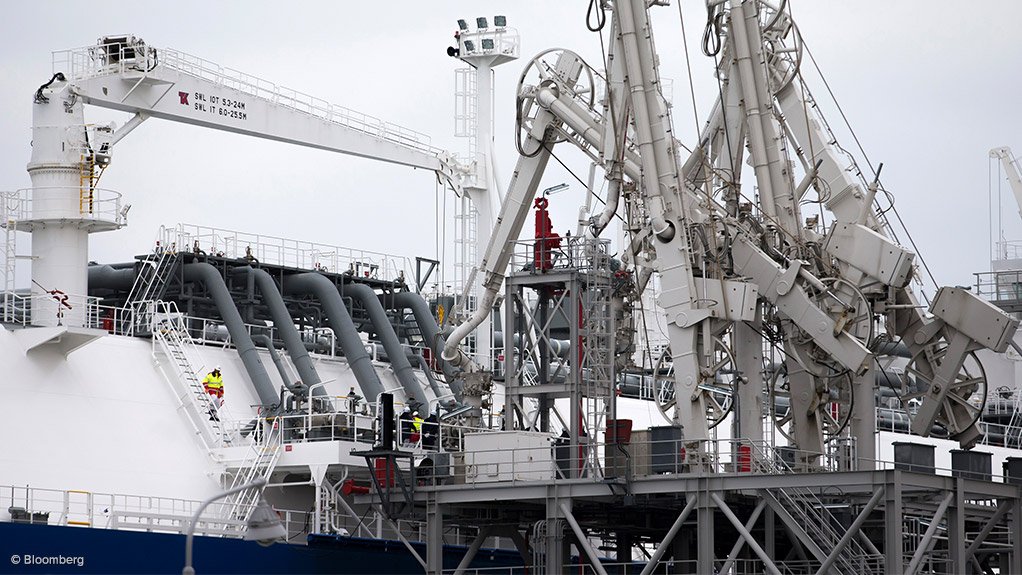
Photo by: Bloomberg
PERTH (miningweekly.com) – As investment in Australia's liquefied natural gas (LNG) sector falls to its lowest level since 2009, LNG exports are tipped to increase on the back of the completion of the Gorgon, Prelude and Ichthys developments this year.
Advisory firm Deloitte Access Economics reported this week that the value of engineering construction work had fallen by nearly a quarter in the year to September 30, reaching its lowest levels since 2010.
“There was [also] a significant fall in engineering construction in the last three months of 2016, and there’s more to come, with a number of large gas project scheduled for completion over the coming year,” said Deloitte Access Economics partner Stephen Smith.
Following the recent completion of the A$25-billion Australia Pacific LNG project, only three of six of the original LNG megaprojects remain under construction.
The development of the Gorgon, Prelude and Ichthys projects will remove some A$100-billion of project activity from the database this year, Smith said. Only the A$34-billion Wheatstone development is set to extend its construction phase beyond 2017.
“In the absence of new projects, this will see the value of our investment monitor database fall to its lowest levels since early 2009.”
The total value of projects in the database fell by 3.5% to A$782.5-billion for the quarter to December 31, while the value of definite projects decreased by A$32.5-billion.
However, the value of planned projects grew by A$4.1-billion in the December quarter.
Smith noted that despite the recent increases seen in commodity prices, the long-term fundamentals for the mining sector remains relatively unchanged.
“While higher prices may linger, they have been supported by temporary supply shortages, stimulus aimed at China’s construction sector and unusually high levels of investor speculation, none of which will last forever.”